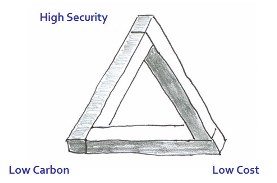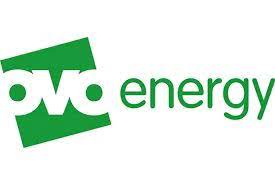Electrify Heat Campaign
Key industry players have come together to promote the Electrify Heat campaign.
The Electrify Heat campaign has been launched to advocate for clean and climate friendly heating and cooling for the UK.
"Together we are pushing for the fastest possible switch to affordable, zero carbon, clean and safe heating for UK homes through the widescale adoption of electric heat pump technology".
Electrify Heat aims for a well governed transition to clean heat, with national and local bodies working together to deliver the best outcomes for households, communities and the country. It aims to promote the ‘need for speed’ to urgently get on track for Net Zero in the 2020s by building a market to drive down costs for all, and to reduce CO2 emissions from heating drastically.
The Electrify Heat campaign is backed by progressive utility companies and trade associations to encourage a well governed and fair transition to clean heating. The group includes Octopus Energy, OVO, Good Energy, E.on, Scottish Power, the principal trade associations concerned with green heating: GSHPA, HPF, Energy UK, HPA and the ADE, and heat pump installation specialists: ICAX and Pure renewables.
Electrify Heat Campaign Aims
The Electrify Heat Campaign aims for:
- a people-centred approach
- a well-governed transition to clean heat
- the need for speed in achieving Net-Zero
- a level playing field on taxation of electricity and fossil gas
- meeting government targets, including meeting heat pump installations
See press release and comments on the launch of the Electrify Heat campaign.
The Background to the Electrify Heat Campaign
The background to the Electify Heat Campaign is that:
- Nearly half the energy used in the UK is for heating.
- More than half the natural gas used is for heating – compared to 34% for generating electricity.
- The concentration of CO2 in the atmosphere remained below 280 parts per million (ppm) for 800 thousand years until the start of the Industrial Revolution in the eighteenth century.
- The CO2 concentration has risen from 280 ppm in 1780 up to 417 ppm in 2022.
- Every thinking person (except Nigel Lawson) accepts that we must control carbon emissions, or face unknown consequences in the decades ahead.
- If we are aiming for a low carbon economy we need to stop combustion of gas, oil, coal and biomass.
- What is the alternative?
Heat Transfer
There is plenty of natural heat all around us (all at a temperature above absolute zero). What we need to do is to start managing that heat.
If the heat is in the wrong place we can transfer heat using heat pumps.
If the heat is too dispersed then we can concentrate heat using heat pumps.
It is now possible to store heat from the time it is freely available (summer) to the time when it is needed (winter).
Heating accounts for nearly half of UK national energy demand. It is largely supplied by natural gas. However, the future of heating will be very different, with a strong move towards the electrification of heat. All UK Net Zero by 2050 scenarios include a major electrified heat supply. Heat pumps are the key technology, delivering 80-90% of heating.
Heat pumps can deliver low carbon heating now. They will deliver even lower carbon heating as the electricity grid is decarbonised. The same heat pumps can deliver low carbon cooling now and lower carbon cooling as the grid is decarbonised.
Electrify Heat
There are now new ways of organising information and temperature to provide renewable heating and renewable cooling by recycling heat in district circuits.
The search for new techniques to control carbon emissions is advancing. There are alternatives to burning fossil fuels to keep us warm in winter – and cool in summer. The answer is to recycle heat between seasons and within districts – and by recycling heat it is also possible to provide heating without contributing to urban air pollution.
Some electric power distribution companies have decided to standardise on three phase service cables to new domestic properties. This infrastructure upgrade will help the transition toward using heat pumps to decarbonise domestic heating.
Demand Response and Distributed Heat Storage
The demand for electricity fluctuates during each 24 hour day. The supply of electricity also fluctuates, with photovoltaic cells generating electricity on clear days and wind turbines when the wind is blowing.
The National Grid must be able to guarantee power at times of peak demand.
"Demand Response" can be used to stimulate use of electricity at off-peak times (by lowering prices) and to discourage use of electricity at peak times (by increasing prices). Demand response goes hand-in-hand with temporary heat storage in insulated hot water cylinders: a low price signal can be used to trigger heat pumps to increase the temperature of DHW storage.
Electrify Transport
It is also possible to decarbonise transport by using electric vehicles which issue no CO2, no particulates and no NO2 either. Electric vehicles require the use of electric batteries or hydrogen fuel cells. Battery electric vehicles can be charged using off-peak electricity. Fuel cell vehicles can be filled with hydrogen derived from electrolysis using off peak electricity, although this is a less efficient route to clean transport.
The majority of cars sold in Norway are now electric. The same would be true in the UK if parliament would vote for clean air in our cities.
Balanced Energy Network
An ICAX project is pioneering the electrification of heat in the Balanced Energy Network in central London in which heat is transferred into London South Bank University buildings from the London chalk aquifer in a fifth generation district heat network.
Shoreham Harbour Heat Network
ICAX has installed a marine source heat pump in the Shoreham harbour heat network.
Barriers to the electrification of heat in UK
The UK Treasury's "social and environmental levy" on electricity is the chief barrier to decarbonising heating in the UK: spark gap.
See Low Carbon Heating See Low Carbon Cooling See Ground Source Energy
















